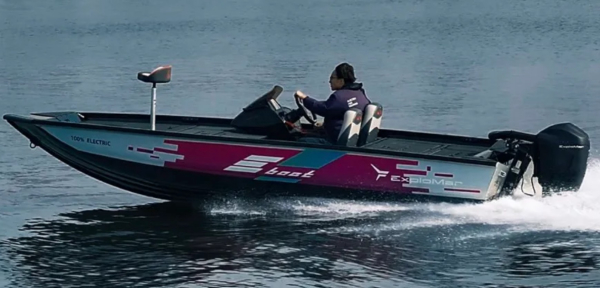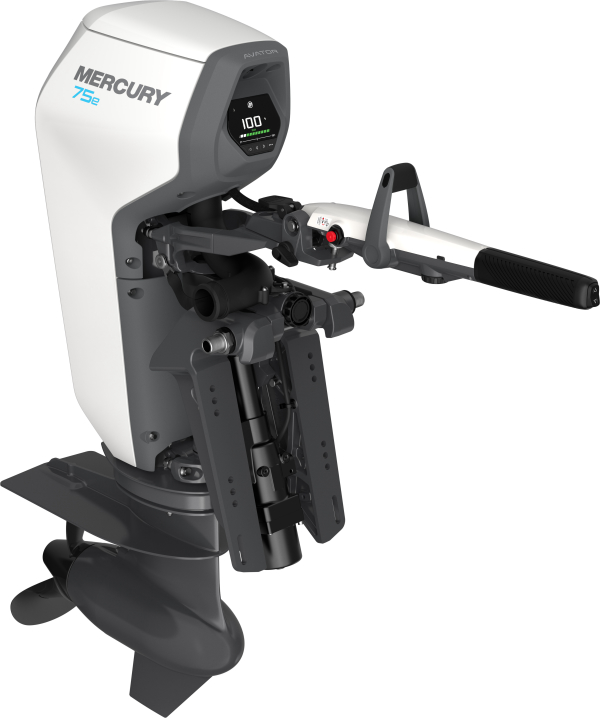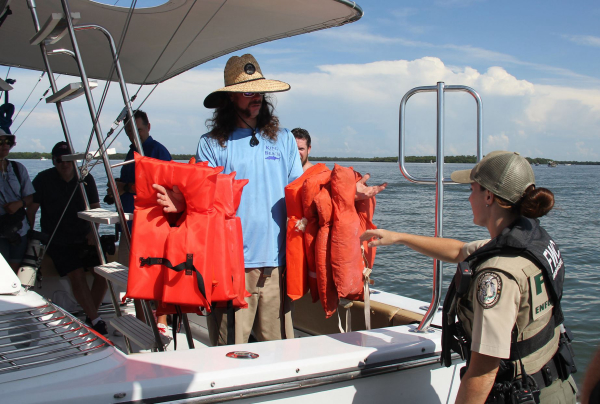
Personally, I sort of like the roar of a big V8 outboard pushing a bass boat on plane, but the future may not go in that direction if the concept of a new lightweight aluminum bass boat with an electric outboard catches on.
The admittedly experimental product right now won’t exceed 45 mph and run time is about an hour at that speed, so basically it sucks--but hey, Forrest Wood probably never visualized a modern Z52D equipped with a 300-hp outboard when he started out in 1968, either.
The 16-footer is built in Taiwan, and the ExploMar motor is Chinese—so I’m guessing you won’t see one on Lake Guntersville or Eufaula any time soon. The tariff wars alone are enough to keep these rigs at bay for the moment, but that doesn’t mean an enterprising U.S. company might not consider an experimental model.
Also, right now the boat is called the “Kimple”. Doesn’t have the ring of Bullet, Caymas, Phoenix, Skeeter or Ranger, does it? Likely a tough sell across bass country.
But the capability to have a nearly silent, totally emission-free bassing machine—which maybe with one relatively light 60 kWH battery pack could run everything in the boat including four or five big, power-hungry sonars and the trolling motor, may have some interest, especially on smaller lakes where long runs are not required.
Being able to simply plug in at night instead of heading to the refueling dock to buy $5 a gallon unleaded gas would also have lots of appeal.
The ExploMar company also makes an electric motor rated at 300-hp, but a battery to feed that giant would likely sink a bass boat at present.
But some flyweight boats with dual outboard motors from Vision Marine have already proven that impressive speed—over 100 mph—is possible with electric power here in the U.S.A.

Whether the skunk works at Mercury, Suzuki and Yamaha are fooling with this concept remains to be seen, but it would not be totally shocking to see Jacob Wheeler or Justin Lucas leave the ramp with a purr instead of a roar within the next few years.
Florida Passes Boater Protection Rule
If you’ve ever been stopped by a marine patrol officer for a “safety check” just as you’re leaving the boat ramp with a load of squirmy, too hot kids, dogs and moms who would just as soon be sitting on the beach under an umbrella, you’ll appreciate Florida’s new “Boater Freedom Act”, which Governor DeSantis recently signed into law. No more safety checks without “cause”, per the law signed last week. That is, if you are obviously bombed pulling away from the dock, the officer can still stop you, but barring a reasonable suspicion of wrong-doing, no.
Personally, I don’t particularly see the need for this law, or necessarily the wisdom of it. In some 50 years of boating on Florida’s lakes and coastal waters, I had exactly one official safety check—the state’s officers are spread too thin to do much of this at all. (The Power Squadrons and Coast Guard Auxiliary, on the other hand, offer these all the time and do yeomen service at it.)
And, it seems that removing the possibility of a random check likely will encourage some unwise boaters to push off without some of the gear that will save the lives of family and friends when that day comes that things go bad on the water. Particularly the lack of PFD’s for kids can lead to heartbreaking tragedies.
Per the law the FWC will issue a “Florida Freedom Boater” decal at the time of vessel registration. The decal will indicate that a boater has met required safety standards, a move DeSantis says is aimed at streamlining enforcement procedures and reducing unnecessary inspections.

Of course, if you’re wise, you’ll make sure you have everything that keeps your crew safe aboard every time you push off, law or no.
Also, the new law prohibits local authorities from banning the gas-powered vessels, a move DeSantis says “ensures that boaters who prefer gas vessels will not be limited by activist local entities.”
At issue here will be small city ponds where only electric motors or oars are permitted—rare but not unheard of in Florida.
In coastal waters, there are already numerous “no motor zones” where anglers are allowed to enter via push pole or electric trolling motor but not by outboard, a big plus for fishing because it reduces spooking fish. The areas are designated by the state, and hopefully will not be changed.
The new law specifies that it does not alter existing statewide regulations concerning wake zones, manatee protection areas and seagrass preservation, so that sounds like the status quo will be preserved—a good thing from the view of anglers and conservationists..
Governor DeSantis has also signed House Bill 735, to provide additional funding to expand public access to Florida waterways. It allocates financial resources for the development of boat ramps, marina facilities and associated parking infrastructure – program to be administered by the FWC.
Anybody who has had the misfortune of trying to launch at one of the more popular ramps around the state these days, particularly on a weekend, will immediately see the benefit of this provision.
— Frank Sargeant
Frankmako1@gmail.com